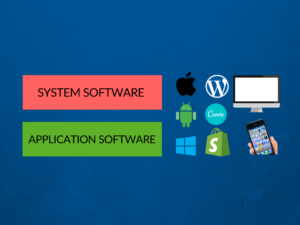What is the Difference between Firewall and Antivirus?
Firewall and antivirus are two essential components in the realm of cybersecurity. While they both contribute to protecting your computer and network from threats, they have distinct roles and functions. In this article, we will explore the differences between firewall and antivirus, highlighting their definitions, examples, uses, and more.
What is a Firewall?
A firewall is a network security device that creates a barrier between an internal network (such as your computer or local network) and the external network (usually the internet). Its primary purpose is to monitor and control incoming and outgoing network traffic based on predetermined security rules.
Examples of Firewalls:
Some popular firewall examples include Cisco ASA, Check Point Next Generation Firewall, pfSense, Windows Firewall, and Fortinet FortiGate.
Uses of Firewalls:
- Blocking unauthorized access to your network
- Preventing malicious attacks and malware from entering your system
- Controlling and monitoring network traffic
- Filtering specific types of traffic, such as specific IP addresses or ports
- Protecting sensitive data by creating network segments or zones
What is an Antivirus?
An antivirus, also known as anti-malware software, is a program designed to detect, prevent, and remove various types of malicious software from your computer. It scans files, applications, and the overall system for known patterns of malicious code and takes appropriate actions to eliminate or quarantine them.
Examples of Antivirus:
Popular antivirus software examples include Norton Antivirus, McAfee Total Protection, Avast Antivirus, Kaspersky Antivirus, and Bitdefender Antivirus Plus.
Uses of Antivirus:
- Detecting and eliminating viruses, worms, trojans, and other malware
- Scanning downloads and email attachments for potential threats
- Real-time protection against new and emerging threats
- Scheduling automated scans to ensure regular system check-ups
- Blocking malicious websites or dangerous URLs
Differences between Firewall and Antivirus:
| Difference Area | Firewall | Antivirus |
|---|---|---|
| Primary Function | Monitors and controls network traffic based on security rules. | Detects, prevents, and removes malicious software from your computer. |
| Level of Protection | Protects your network and devices from unauthorized access. | Protects your computer and files from malware infections. |
| Focus Area | Network security | System security |
| Scope | Operates at the network level, controlling traffic flow. | Operates at the software level, scanning files and processes. |
| Protection Timeframe | Provides protection while connected to a network. | Provides continuous protection, even offline. |
| Prevention Approach | Acts as a gatekeeper, enforcing security policies. | Analyzes files and activities based on known threat signatures. |
| Scope of Coverage | Protects multiple devices connected to a network. | Protects individual devices where it is installed. |
| Impact on Performance | Minimal impact, as it focuses on network traffic analysis. | Can impact system performance during scans and updates. |
| Updates | Regularly updated with new firewall rules and configurations. | Regularly updated with new virus definitions and detection techniques. |
| Cost | Firewalls can be stand-alone devices or software and may require a purchase. | Many antivirus programs offer free versions, with advanced features available for purchase. |
Conclusion:
In summary, firewalls and antivirus software play complementary roles in protecting your computer and network. While firewalls focus on network traffic and preventing unauthorized access, antivirus software targets malware detection and removal at the system level. Implementing both is crucial for a comprehensive cybersecurity strategy.
People Also Ask:
- What is the main purpose of a firewall?
- What does antivirus software do?
- Do I need both a firewall and antivirus?
- Can a firewall block viruses?
- Should I use a hardware or software firewall?
The main purpose of a firewall is to monitor and control network traffic, protecting your network from unauthorized access and maintaining security rules.
Antivirus software scans for and detects malware, viruses, and other malicious software on your computer, removing them to prevent potential damage.
Yes, both firewall and antivirus software are essential for comprehensive protection. Firewalls safeguard your network, while antivirus software protects your computer from internal threats.
No, a firewall cannot directly block viruses. However, it can block malware from entering your network by controlling incoming and outgoing traffic.
Both hardware and software firewalls have their advantages. Hardware firewalls provide network-wide protection, while software firewalls offer flexibility for personal computer settings.


